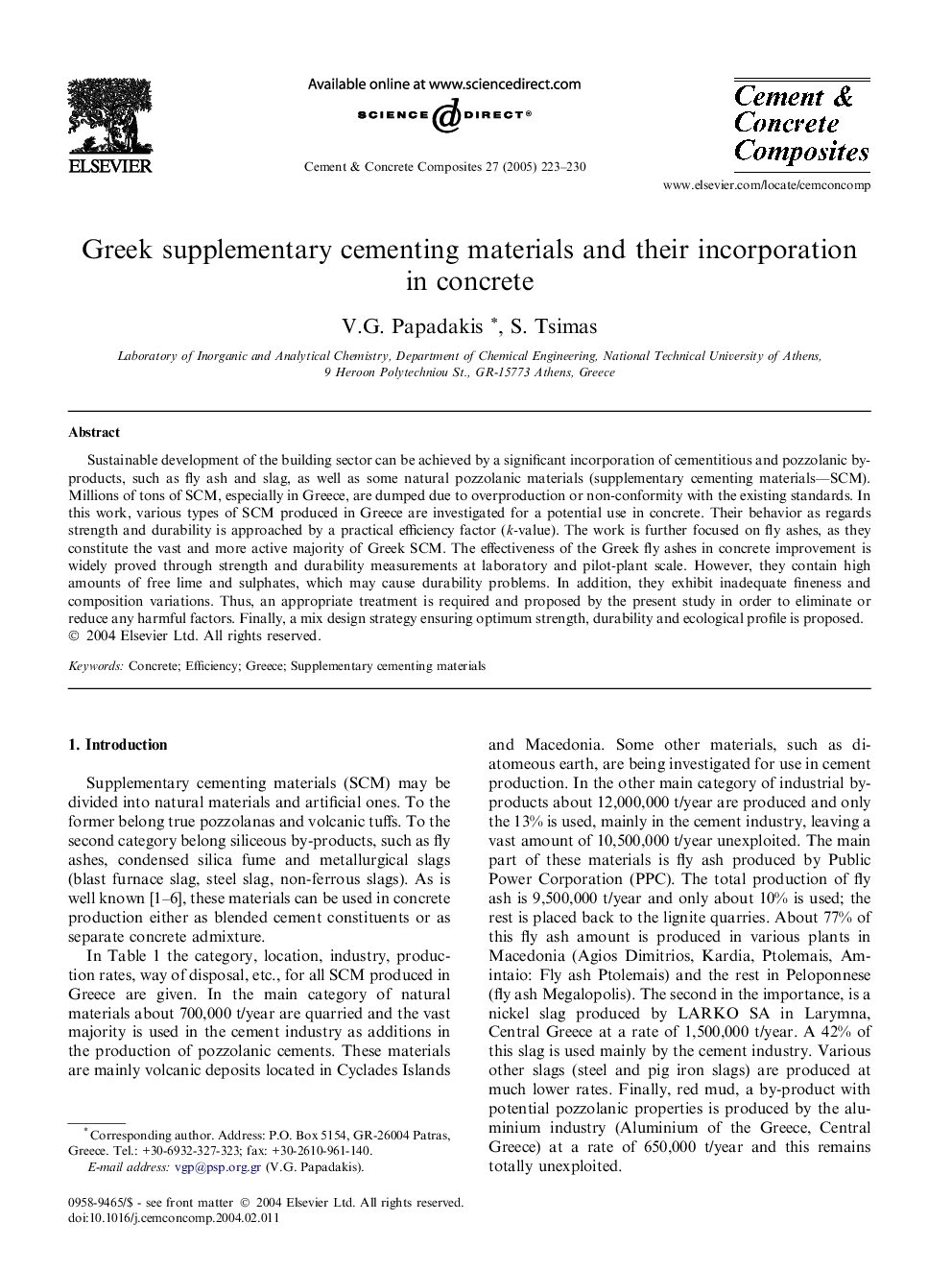| Article ID | Journal | Published Year | Pages | File Type |
|---|---|---|---|---|
| 10622240 | Cement and Concrete Composites | 2005 | 8 Pages |
Abstract
Sustainable development of the building sector can be achieved by a significant incorporation of cementitious and pozzolanic by-products, such as fly ash and slag, as well as some natural pozzolanic materials (supplementary cementing materials--SCM). Millions of tons of SCM, especially in Greece, are dumped due to overproduction or non-conformity with the existing standards. In this work, various types of SCM produced in Greece are investigated for a potential use in concrete. Their behavior as regards strength and durability is approached by a practical efficiency factor (k-value). The work is further focused on fly ashes, as they constitute the vast and more active majority of Greek SCM. The effectiveness of the Greek fly ashes in concrete improvement is widely proved through strength and durability measurements at laboratory and pilot-plant scale. However, they contain high amounts of free lime and sulphates, which may cause durability problems. In addition, they exhibit inadequate fineness and composition variations. Thus, an appropriate treatment is required and proposed by the present study in order to eliminate or reduce any harmful factors. Finally, a mix design strategy ensuring optimum strength, durability and ecological profile is proposed.
Related Topics
Physical Sciences and Engineering
Engineering
Industrial and Manufacturing Engineering
Authors
V.G. Papadakis, S. Tsimas,
